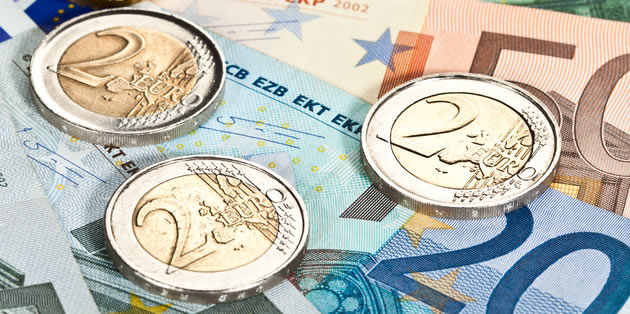- Euro forecast to struggle – Improved Fed rate hike bets to weigh
- Pound Sterling forecast to fluctuate – ‘Brexit’ developments to dictate movement
- UK data to drive EUR/GBP changes – Consumer prices in focus
- Influential European data lacking – US ecostats to provoke EUR volatility
Euro (EUR) Exchange Rate Forecast: Will USD Strength Limit EUR Appeal?
Last week the Euro fluctuated versus its major peers, but a slight lean towards negativity can be linked to US Dollar strength at the close of the week. Apart from ‘Brexit’ concerns and comparatively weak domestic data results, one of the major factors weighing on demand for the single currency is increased speculation that the European Central Bank (ECB) will have no choice but to ease monetary policy further.
Whilst European ecostats will be somewhat thin on the ground this week, the single currency is still likely to see significant volatility in response to US data thanks to negative correlation. Tuesday’s US inflation data and Wednesday’s Federal Open Market Committee (FOMC) meeting minutes will be most likely to impact on the Euro.
In terms of domestic data, Wednesday’s Eurozone inflation data will be closely watched by traders. Weak consumer prices will probably cause the ECB to consider cutting the official cash rate further into negative territory.
If the US Dollar continues to appreciate, thanks to bets of reduced Fed rate hike delays, the Euro will struggle irrespective of domestic ecostats.
Pound Sterling (GBP) Exchange Rate Forecast: Inflation Data to Provoke Volatility
Last week the British Pound fluctuated versus its major peers as EU referendum developments dictated movement. A general lean towards appreciation, however, can be linked to comments from Bank of England (BoE) Governor Mark Carney.
After having kept rates on hold but downgrading growth forecasts for 2016, Carney’s accompanying press conference saw the central bank chief state categorically that a ‘Brexit’ will not be good for the UK’s economy, and he added that it may even cause a technical recession. This caused the UK unit to rally as traders hoped that those on the fence for the EU vote will now be persuaded to remain in the EU.
There will be a number of British ecostats over the coming week with potential to provoke GBP exchange rate volatility. The most influential of which will be Tuesday’s inflation data given that low consumer prices have been one of the sticking points preventing a cash rate increase.
If UK consumer price pressures are shown to have increased it may provide Sterling with the momentum to advance against its most-traded currency counterparts. Conversely, a slowing in inflation would be Pound-negative and could send the GBP/EUR exchange rate lower.
However, with the EU referendum drawing ever closer, there is a chance that domestic data will have minimal impact as trader focus is dominated by political developments.
On Friday the Euro to Pound Sterling (EUR/GBP) exchange rate was trending within the range of 0.7861 to 0.7883.



